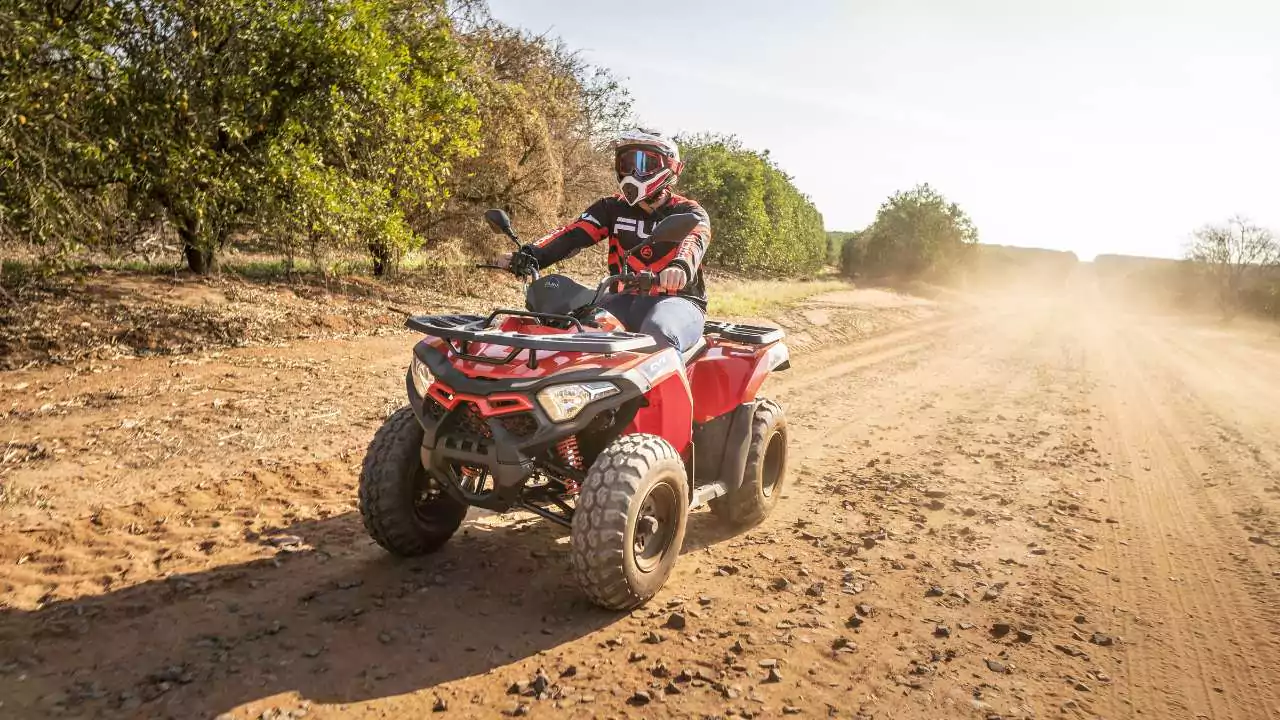Yes, health insurance can cover ATV accidents in some cases. However, it is important to note that there are some limitations and restrictions to this coverage.
What is an ATV and Why is Insurance Needed?
An ATV is a type of off-road vehicle that has three or four wheels and is designed to be operated by a single rider. ATVs can be used for various purposes, such as hunting, farming, racing, or exploring. However, ATVs are not street-legal vehicles, meaning they cannot be driven on public roads. Therefore, they are not subject to the same regulations and requirements as regular vehicles, such as registration, licensing, or mandatory insurance.
However, this does not mean that you do not need insurance for your ATV. In fact, insurance is very important for ATV owners and riders, as it can protect you from financial losses in case of an accident. According to the Consumer Product Safety Commission, there were 81,800 ATV-related injuries and 385 ATV-related deaths in the United States in 2019. The most common injuries from ATV accidents include head trauma, spinal cord damage, fractures, internal organ damage, and soft tissue injuries. These injuries can require extensive medical treatment and rehabilitation, which can be very costly. Without insurance, you may have to pay for these expenses out of your own pocket, which can put a huge strain on your finances.
What Does ATV Insurance Cover?
ATV insurance is a type of insurance that covers the risks and liabilities associated with owning and operating an ATV. ATV insurance can vary depending on the provider, the policy, and the coverage options you choose. However, the most common types of coverage for ATV insurance are:
- Liability coverage: This covers the damages and injuries you cause to others or their property while riding your ATV. This can include medical bills, legal fees, and repair costs. Liability coverage is required by law in some states if you use your ATV on public lands or trails. Even if it is not required, it is highly recommended, as it can protect you from lawsuits and claims from third parties.
- Collision coverage: This covers the damages to your ATV caused by a collision with another vehicle or object. This can include repair or replacement costs for your ATV. Collision coverage is optional, but it can be useful if you have a valuable or new ATV that you want to protect.
- Comprehensive coverage: This covers the damages to your ATV caused by events other than a collision, such as fire, theft, vandalism, or natural disasters. This can also include repair or replacement costs for your ATV. Comprehensive coverage is optional, but it can be beneficial if you want to protect your ATV from unforeseen circumstances.
- Uninsured/underinsured motorist coverage: This covers the damages and injuries you suffer from a collision with another ATV or vehicle that does not have enough or any insurance to cover your losses. This can include medical bills, lost wages, and pain and suffering. Uninsured/underinsured motorist coverage is optional, but it can be helpful if you encounter a negligent or irresponsible driver who does not have adequate insurance.
Does Health Insurance Cover ATV Accidents?
Yes, your existing health insurance plan may cover ATV accidents in some cases. However, it is important to check your policy carefully to see if there are any exclusions for “hazardous activities.” Some health insurance policies may exclude ATV riding from coverage.
Possible Coverage Under Existing Health Insurance Plan
If your health insurance policy does not exclude ATV riding, then it will likely cover your medical expenses from an ATV accident. This will include things such as hospital stays, doctor visits, and surgery.
Restrictions for “Hazardous Activities”
Even if your health insurance policy does not specifically exclude ATV riding, it may still have a general exclusion for “hazardous activities.” This means that your policy may not cover your medical expenses if you are injured while participating in an activity that is considered to be hazardous, such as skydiving or mountain climbing.
Other Options for Compensation After an ATV Accident
If your health insurance does not cover ATV accidents, or if it does not cover enough of your medical expenses, you may have other options for compensation. These include:
- Coverage under your auto insurance: If you have auto insurance, you may have personal injury protection (PIP) or medical payments (MedPay) coverage, which can cover your medical expenses regardless of who was at fault for the accident. However, these coverages may not apply to ATV accidents, as ATVs are not considered regular vehicles. You should check your auto insurance policy and see if it covers ATV accidents, and if so, how much and under what conditions.
- Coverage under the ATV insurance of the at-fault party: If the ATV accident was caused by another ATV or vehicle driver who was negligent or reckless, you may be able to claim compensation from their ATV or auto insurance. This can include their liability coverage, which can cover your medical expenses, as well as other damages, such as lost income, property damage, and pain and suffering. However, this depends on whether the at-fault party has enough or any insurance to cover your losses, and whether they admit or deny their fault.
- Seeking legal assistance for compensation: If you cannot get adequate compensation from your health insurance, your auto insurance, or the insurance of the at-fault party, you may want to seek legal assistance from a personal injury lawyer who specializes in ATV accidents. A lawyer can help you evaluate your case, gather evidence, negotiate with the insurance companies, and file a lawsuit if necessary. A lawyer can also help you pursue compensation for non-economic damages, such as emotional distress, loss of enjoyment of life, and punitive damages, which are not covered by insurance.





